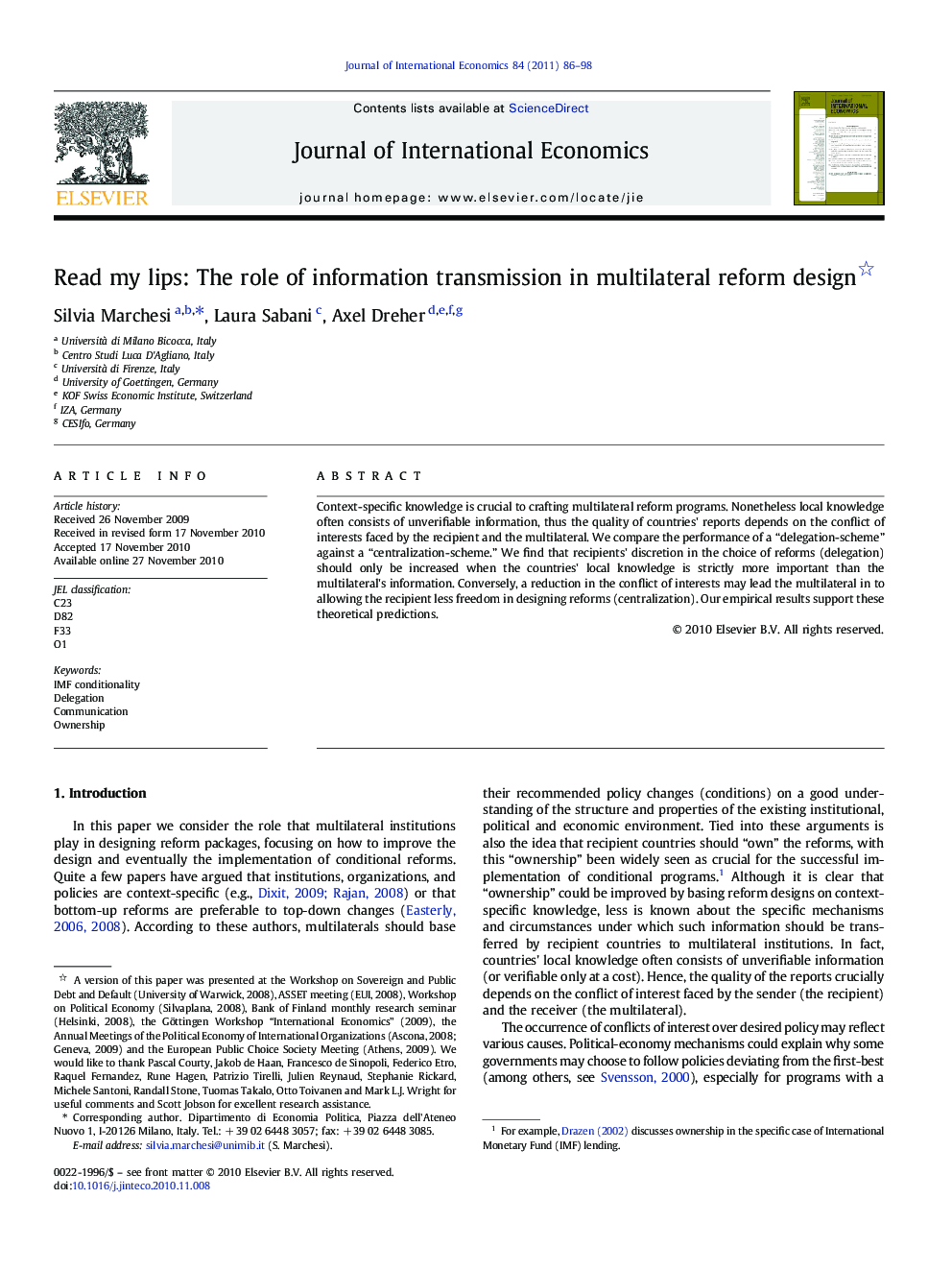| Article ID | Journal | Published Year | Pages | File Type |
|---|---|---|---|---|
| 963079 | Journal of International Economics | 2011 | 13 Pages |
Abstract
Context-specific knowledge is crucial to crafting multilateral reform programs. Nonetheless local knowledge often consists of unverifiable information, thus the quality of countries' reports depends on the conflict of interests faced by the recipient and the multilateral. We compare the performance of a “delegation-scheme” against a “centralization-scheme.” We find that recipients' discretion in the choice of reforms (delegation) should only be increased when the countries' local knowledge is strictly more important than the multilateral's information. Conversely, a reduction in the conflict of interests may lead the multilateral in to allowing the recipient less freedom in designing reforms (centralization). Our empirical results support these theoretical predictions.
Related Topics
Social Sciences and Humanities
Economics, Econometrics and Finance
Economics and Econometrics
Authors
Silvia Marchesi, Laura Sabani, Axel Dreher,
